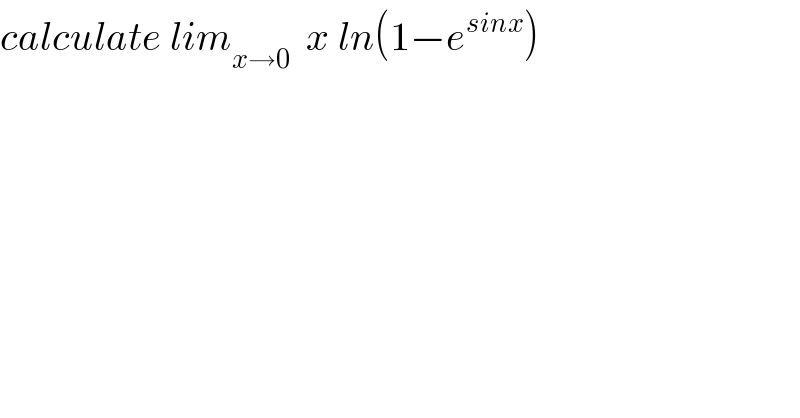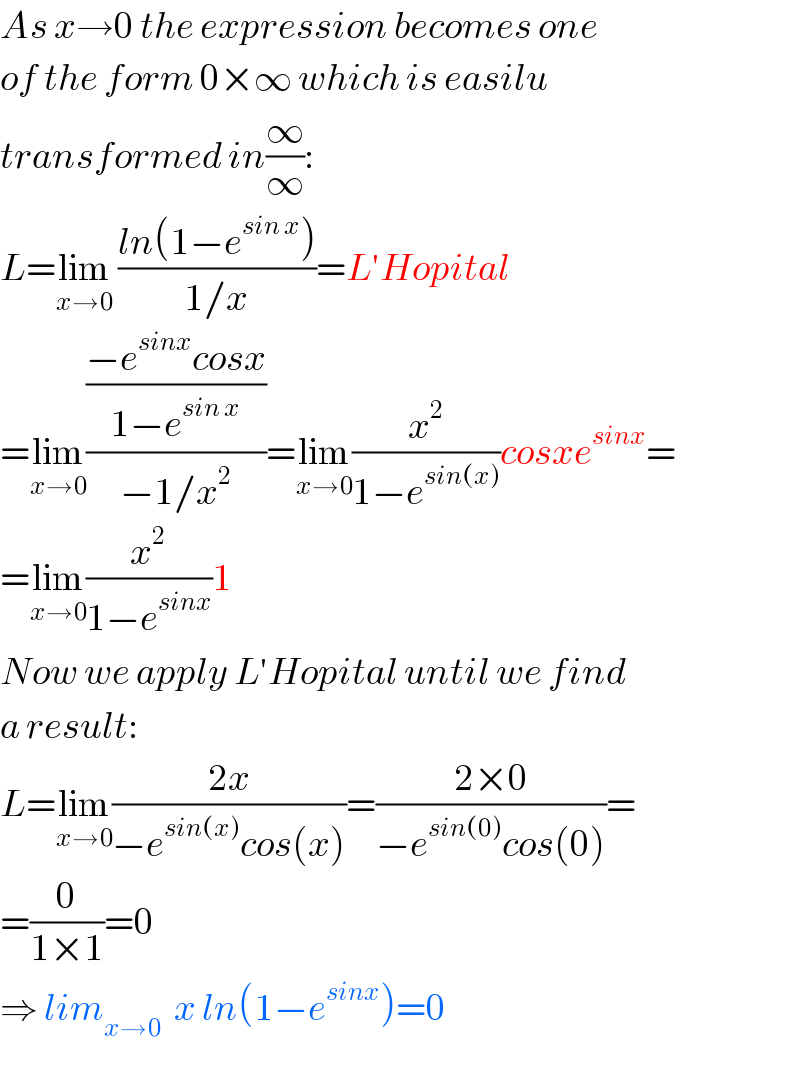
Question and Answers Forum
Question Number 41761 by math khazana by abdo last updated on 12/Aug/18

Answered by alex041103 last updated on 12/Aug/18

| ||
Question and Answers Forum | ||
Question Number 41761 by math khazana by abdo last updated on 12/Aug/18 | ||
 | ||
Answered by alex041103 last updated on 12/Aug/18 | ||
 | ||
| ||